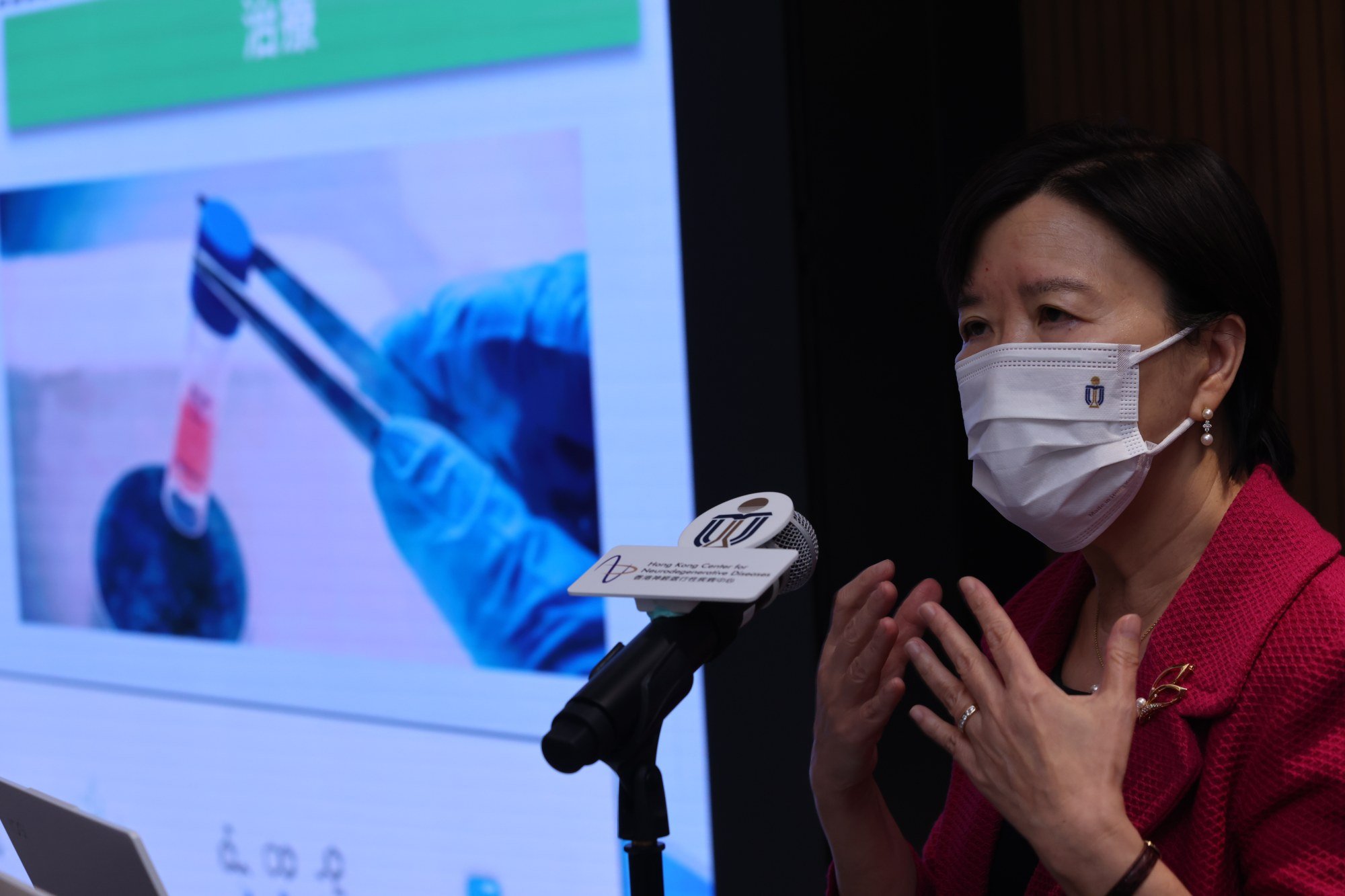
Hong Kong scientists say blood test for detecting Alzheimer’s disease could become available to public by next year
- Researcher from Hong Kong University of Science and Technology says project members want to work with business sector to make tests widely available
- HKUST team also conducting preclinical trials on primates for possible treatment using genome-editing technology
A test that uses a single drop of blood to determine if a person has Alzheimer’s disease could become available to the general public by next year, a group of Hong Kong scientists have said.
Researchers from the Hong Kong University of Science and Technology (HKUST) revealed the progress of the project on Wednesday, adding that they were also doing preclinical trials on primates to develop a treatment for the neurodegenerative disease through genome-editing technology.
The blood test was developed in a collaborative effort with scientists from the University College London (UCL), with local researchers aiming to make it easier to produce.
“We hope to simplify the test and use the lowest cost to achieve what we want to do,” said Fanny Ip Chui-fan, a core member of the team led by world-renowned neuroscientist Professor Nancy Ip Yuk-yu. “The test is likely to be launched early next year.”
The test uses a single drop of blood to examine 19 proteins associated with Alzheimer’s disease and has an accuracy rate of more than 96 per cent.

The team was looking to collaborate with the business sector to produce the tests and make them more accessible to the public, said Fanny Ip. It cost the team US$1,500 to analyse each patient.
Announced last year, the test is one of several projects at the Hong Kong Centre for Neurodegenerative Diseases, which has partnered with UCL and Stanford University.
The research facility was set up by HKUST in 2020 and received HK$500 million worth of government funds from the InnoHK initiative, which facilitates the establishment of research groups at the city’s Science Park.
Aside from the blood test, the team is also developing a new treatment for the neurodegenerative disease by applying genome-editing technology to the brain.
Nancy Ip, who first revealed the findings last August, said the research team had already moved on to the next stage of preclinical trials on non-human primates for safety and specificity of the test, following the completion of experiments on mice.
Hong Kong-led team behind promising new treatment for familial Alzheimer’s
The primate experiments are being conducted in mainland China as the city lacks the necessary facilities, she said, adding that the technology had the potential to be a novel and long-lasting treatment for the disease.
Globally, more than 50 million people suffer from Alzheimer’s disease, the most common form of dementia.
According to an estimate from the Hong Kong government, about 100,000 elderly residents have dementia, with Alzheimer’s disease accounting for 65 per cent of all cases.
Nancy Ip said more people were expected to have the disease, which is linked to old age, as the number of seniors increased among the general population.
She noted that the six existing treatments approved by the US Food and Drug Administration had their limitations, with the first five only alleviating symptoms rather than curing the disease.
“For the sixth one, which was launched last year, there was a lot of controversy as it was only effective in a certain group of patients rather than all Alzheimer’s patients,” she said.
“We need to continue the research to identify effective medications.”
Hong Kong doctor recalls feeling helpless at height of city’s fifth Covid wave
The research team also compiled its findings on the disease to create the first comprehensive database of the Chinese population, as most of the previous information had come from Western countries.
The team claimed it was the largest Alzheimer’s disease database of the Chinese population, saying they had collected information from about 1,000 people in Hong Kong and between 2,000 and 3,000 from the mainland.
Based on the data, the team said they had established a scoring system for assessing a person’s risk of developing the disease, with an accuracy rate of about 80 per cent.
Geriatrician Dr Paul Shea Tat-ming, who is not involved in the research team, said many Alzheimer’s patients who came to see him were already in the middle or late stages of the condition.
“They usually have lost some of their functions, such as they can’t go out or go to the toilet by themselves,” he said.
Shea agreed that an early diagnosis before symptoms surfaced would be helpful as it could allow researchers to look for more effective drugs. Patients could also do some life planning while they still had a functioning memory, he said.
“Whether they need to fulfil some wishes earlier, such as world travelling … or perhaps making a will and distributing assets,” he said.

